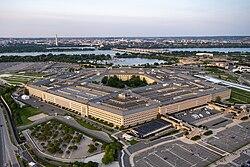Unraveling US-China Defense Dependence: A Critical Analysis of Military Supply Chains
As geopolitical tensions between the United States and China intensify, the intersection of military preparedness and economic entanglement presents a multifaceted challenge to American defense policies. Over recent years, the U.S. defense industry has increasingly sourced vital components from Chinese manufacturers—a trend that raises profound concerns about national security amid escalating diplomatic strains. This growing reliance prompts urgent questions: Can Washington maintain strategic autonomy while depending on a potential adversary’s supply chains? Or has this interdependence compromised America’s ability to respond decisively in a crisis?
This article examines the complexities surrounding U.S. dependence on Chinese-made defense materials, highlighting potential risks and exploring pathways toward greater resilience as military confrontation looms.
The Hidden Risks of Reliance on Chinese Defense Manufacturing
The globalized nature of modern supply chains reveals an unsettling vulnerability within U.S. military logistics—critical weapon systems and advanced technologies often incorporate parts produced in China. From semiconductors essential for guidance systems to aerospace components integral to fighter jets, this dependency can cause significant operational delays during periods of heightened tension or conflict.
Such vulnerabilities are not hypothetical; they pose tangible threats if diplomatic relations deteriorate further. The risk extends beyond mere production slowdowns—it encompasses potential sabotage, intellectual property theft, and strategic leverage by Beijing over American defense capabilities.
To mitigate these dangers, it is imperative for policymakers to:
- Boost domestic manufacturing infrastructure tailored for defense needs.
- Forge stronger industrial partnerships with allied nations to diversify sourcing options.
- Accelerate innovation through targeted research & development initiatives aimed at reducing foreign dependencies.
| Main Concern | Description |
|---|---|
| Production Bottlenecks | Sourcing from overseas suppliers can delay critical repairs or upgrades during emergencies. |
| Supply Chain Disruptions | Tensions or trade restrictions may abruptly sever access to essential materials. |
| Intellectual Property Threats | The possibility of espionage or unauthorized technology transfer undermines innovation security (source link). |
Building Resilience Through Strategic Alliances and Domestic Investment
The debate over U.S. defense procurement increasingly centers on reducing exposure to foreign manufacturing risks by cultivating alternative supply networks. Strengthening ties with NATO allies and other trusted partners offers promising avenues for resource sharing and joint technological advancement—thereby lessening dependence on any single nation’s industrial base.
A notable strategy gaining traction involves public-private collaborations: government agencies working hand-in-hand with private sector innovators accelerate breakthroughs in critical technologies while ensuring secure production lines within national borders.
- Bilateral Joint Ventures: Pooling expertise with allied countries enhances capability development while distributing risk across multiple stakeholders.
- Diversified Domestic Production: Expanding homegrown manufacturing capacity safeguards against external shocks and creates high-skilled employment opportunities domestically.
- Pioneering R&D Programs: Investing heavily in cutting-edge research fosters technological independence crucial for future warfare scenarios.
| Diversification Strategy | Main Advantages |
|---|---|
| Bilateral Joint Ventures | Catalyze shared innovation; strengthen alliance cohesion |
| Diverse Domestic Manufacturing | Create jobs; enhance sovereignty over critical assets |
| Pioneering R&D Initiatives | Sustain competitive edge; reduce long-term costs through innovation |


![[Trump’s World] – South Korea: “Trump is Strong with the Weak, Weak with the Strong” – Institut Montaigne](https://capital-cities.info/wp-content/uploads/2026/01/206289-trumps-world-south-korea-trump-is-strong-with-the-weak-weak-with-the-strong-institut-montaigne-360x180.jpg)











South Korea Says: Trump Champions the Weak but Struggles Against the Powerful